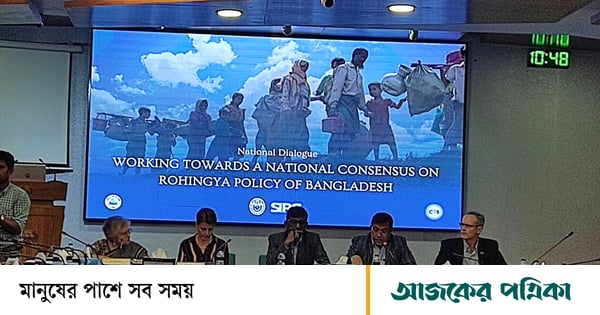Division among Myanmar's Rohingya community, lack of effective leadership and lack of resistance to repressive activities in Rakhine are among the obstacles to their repatriation. Abdul Hafiz, Special Assistant to the Chief Advisor of the Interim Government, thinks so.
He made this comment at the National Dialogue on National Consensus on Bangladesh's Rohingya Policy held in Dhaka on Saturday.
The dialogue was organized by the South Asian Institute of Policy and Governance (SIPG) of North South University (NSU).
Abdul Hafiz said that the situation in the Rohingya refugee camp and surrounding areas is deteriorating every day. Drug and human trafficking are happening. These issues are of concern.
Senior researcher of SIPG, former ambassador to Myanmar, Mohammad Sufiur Rahman, said that the United Nations is not as active in Myanmar as it is in Bangladesh, as it is in Rohingya issue.
He urged the formulation of a national policy on Rohingya.
Sumbul Rizvi, the representative of the United Nations Refugee Agency, said that the registration of Rohingyas who have entered Bangladesh has been stopped. There are about 50,000 such Rohingya.
He urged to take a long-term coordinated initiative to create such an environment in Rakhine so that more than 6 lakh Rohingya who are still in Myanmar do not have to come to Bangladesh.
UN Resident Representative Gwen Lewis feels that there is a lack of coordination at various levels in dealing with the Rohingya crisis.
SIPG Director Professor Sheikh Taufiq M Haque coordinated the first session of the dialogue.

